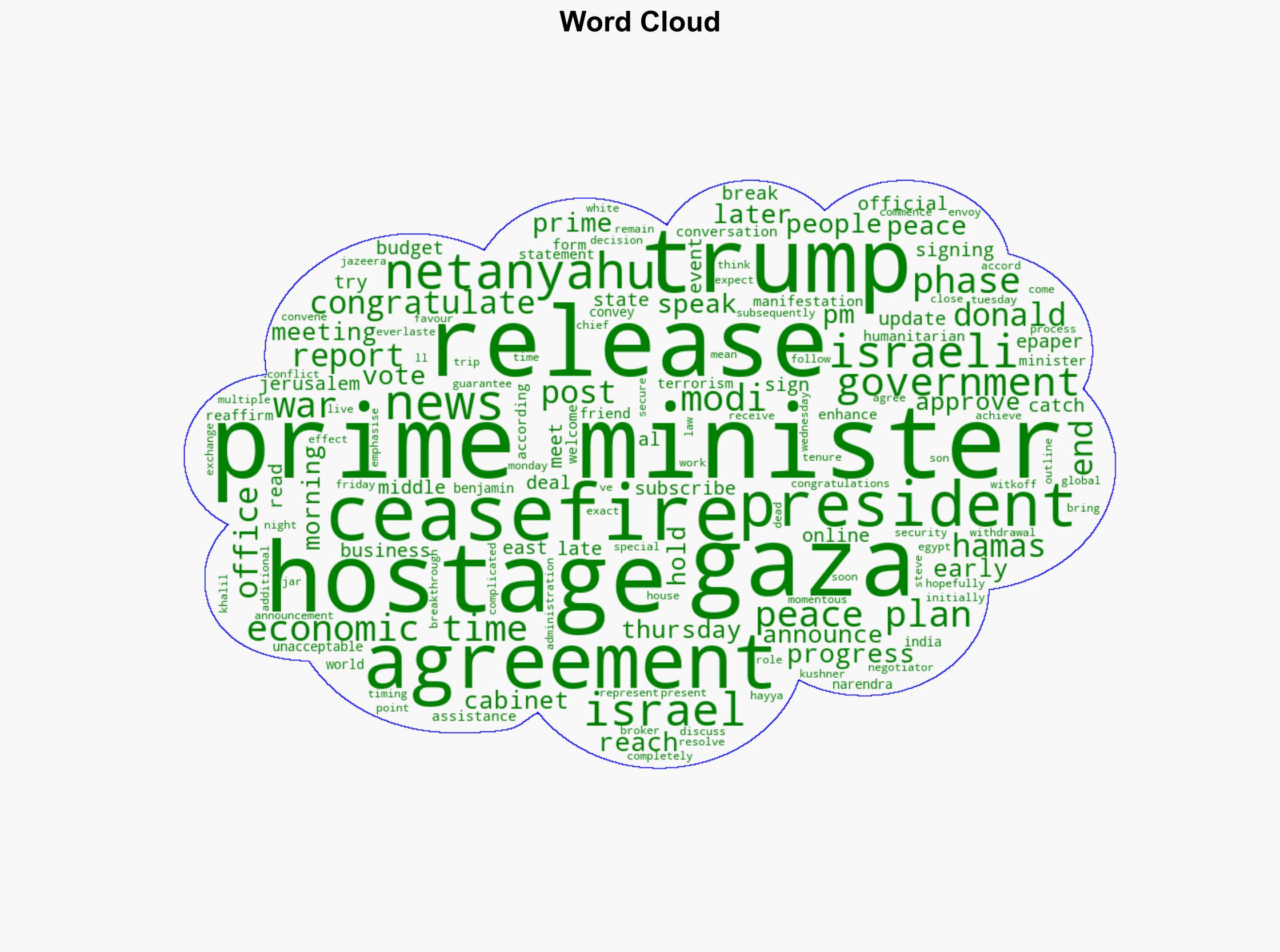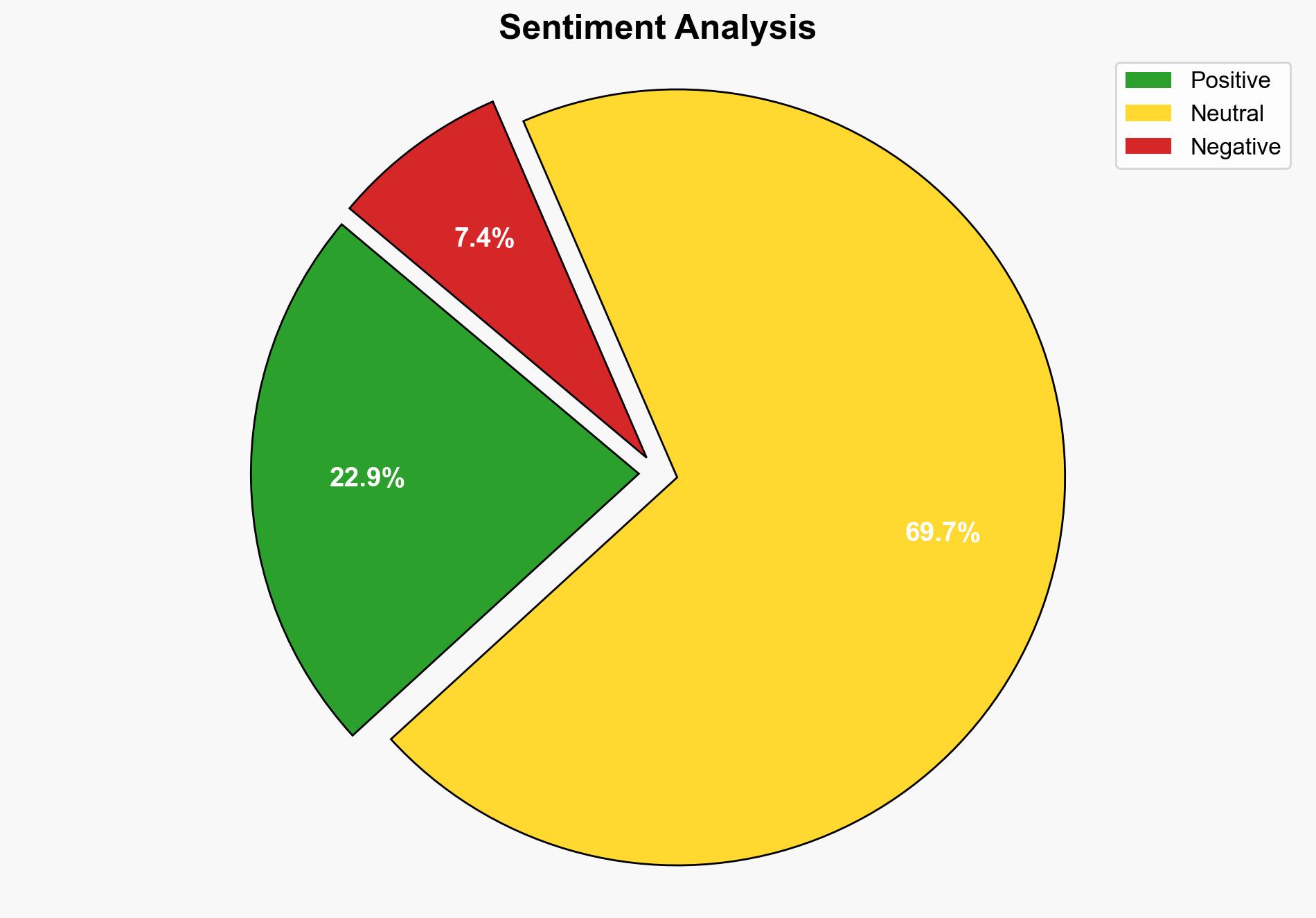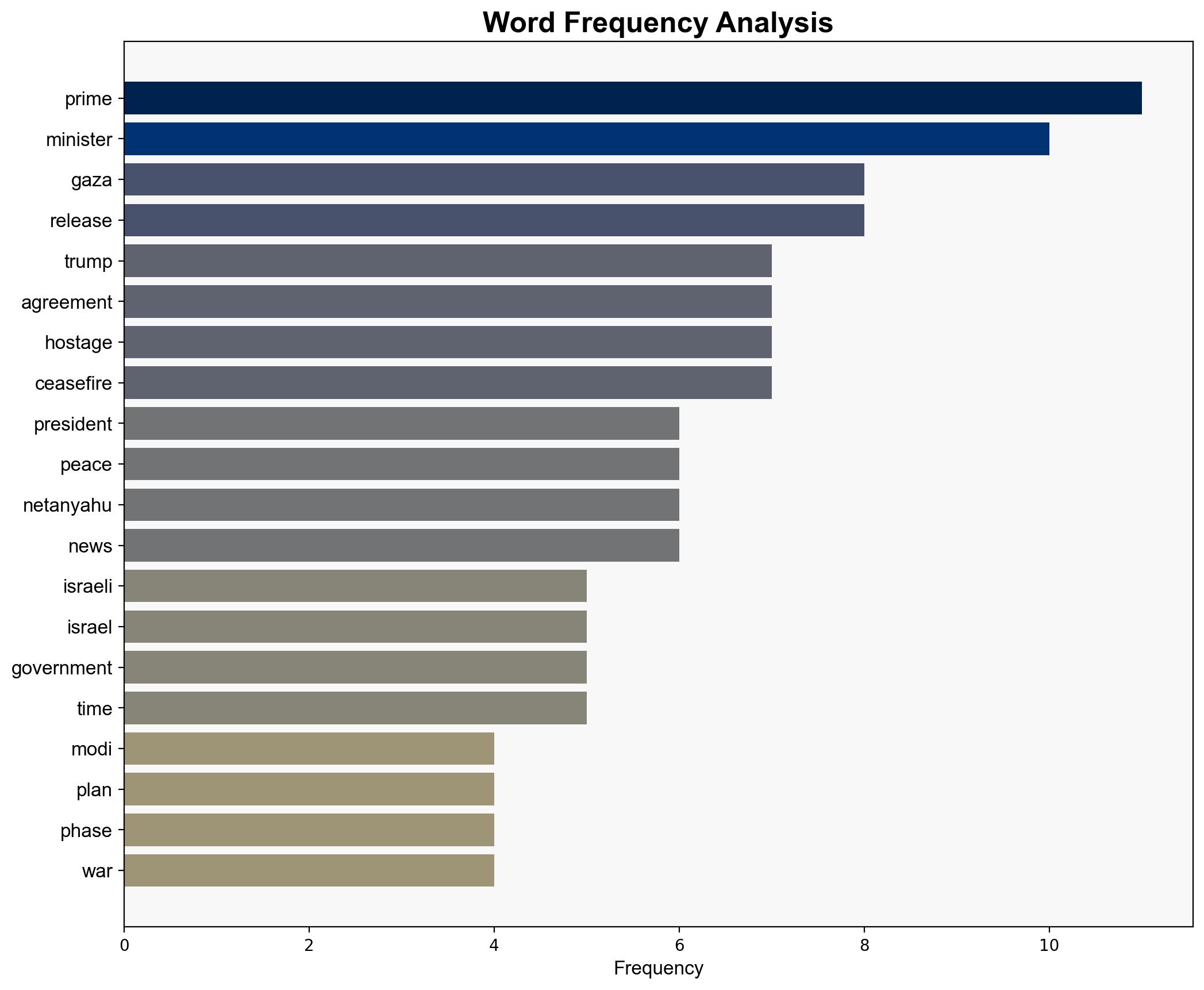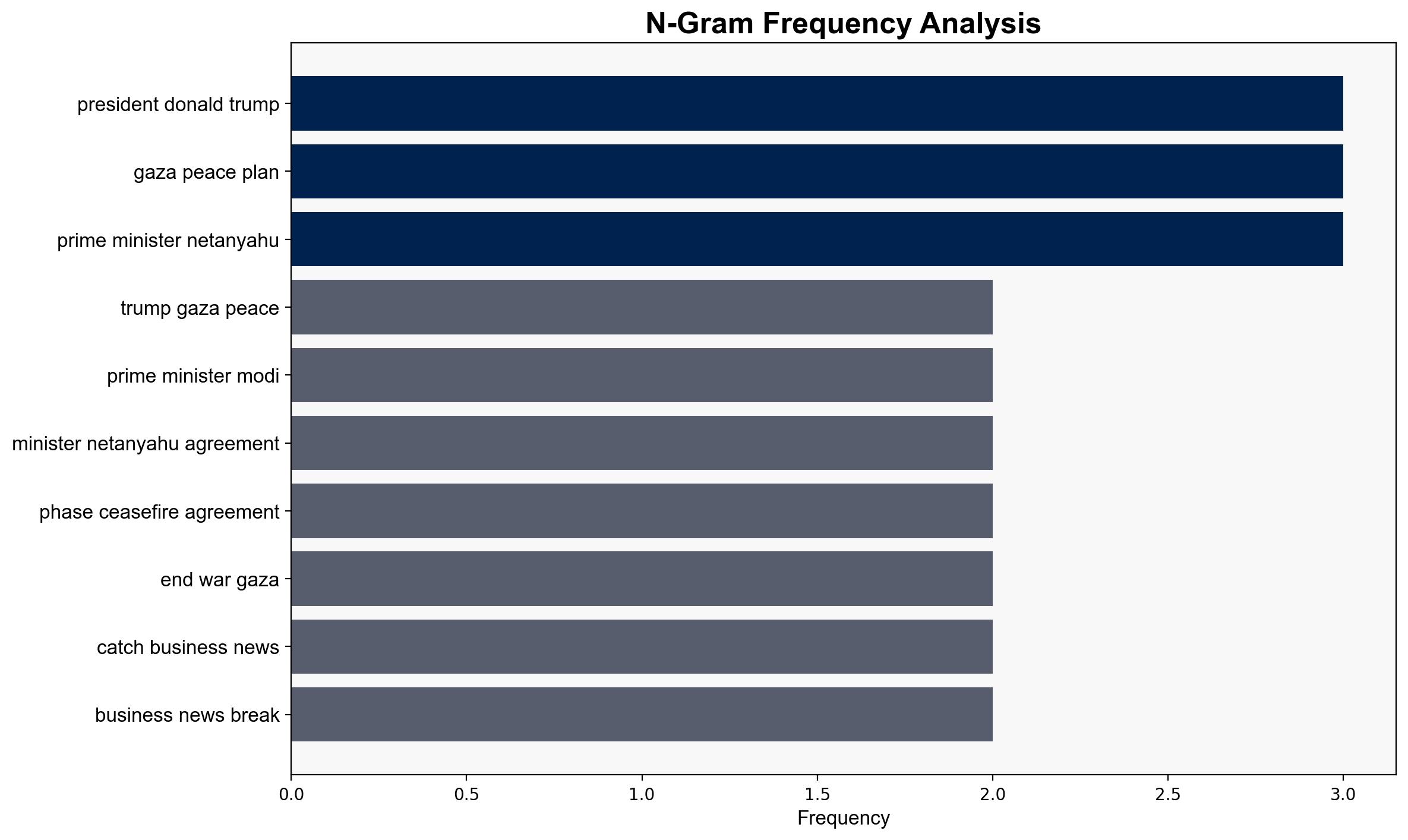Netanyahu pauses security cabinet meeting on Gaza ceasefire deal to speak with PM Modi – The Times of India
Published on: 2025-10-10
Intelligence Report: Netanyahu pauses security cabinet meeting on Gaza ceasefire deal to speak with PM Modi – The Times of India
1. BLUF (Bottom Line Up Front)
The most supported hypothesis is that the conversation between Netanyahu and Modi was a strategic diplomatic move to reinforce international support for the Gaza ceasefire deal. This analysis is conducted with a moderate confidence level due to the lack of detailed information on the content of their discussion. It is recommended to monitor further diplomatic interactions and statements from involved parties to assess the stability of the ceasefire agreement.
2. Competing Hypotheses
1. **Diplomatic Reinforcement Hypothesis**: Netanyahu’s conversation with Modi was primarily to secure and reinforce international support for the Gaza ceasefire agreement, leveraging India’s influence and strategic partnership with Israel.
2. **Symbolic Gesture Hypothesis**: The call was a symbolic gesture intended to publicly demonstrate international backing for the ceasefire, without any substantial impact on the agreement’s implementation or stability.
Using ACH 2.0, the Diplomatic Reinforcement Hypothesis is better supported due to Modi’s public congratulations and the emphasis on humanitarian assistance and counter-terrorism, suggesting a deeper strategic alignment.
3. Key Assumptions and Red Flags
– **Assumptions**: It is assumed that Modi’s congratulations reflect genuine support and not merely diplomatic courtesy. The effectiveness of the ceasefire is presumed to depend on international backing.
– **Red Flags**: The lack of detailed information about the conversation raises questions about its true purpose. The involvement of multiple parties (e.g., Trump, Kushner) suggests potential complexity and competing interests.
4. Implications and Strategic Risks
The ceasefire agreement, if supported by international actors like India, could stabilize the region temporarily. However, the risk of escalation remains if underlying issues are not addressed. Economic impacts could arise from shifts in regional alliances, while cyber threats may increase as parties seek to undermine the agreement.
5. Recommendations and Outlook
- Monitor diplomatic communications and public statements for shifts in support or opposition to the ceasefire.
- Prepare for potential escalation by enhancing intelligence on regional actors’ intentions and capabilities.
- Scenario Projections:
- **Best Case**: The ceasefire holds, leading to long-term peace negotiations.
- **Worst Case**: Breakdown of the ceasefire leads to renewed conflict and regional instability.
- **Most Likely**: Temporary peace with periodic violations and ongoing diplomatic negotiations.
6. Key Individuals and Entities
– Narendra Modi
– Benjamin Netanyahu
– Donald Trump
– Jared Kushner
– Khalil al-Hayya
7. Thematic Tags
national security threats, diplomacy, regional stability, international relations




